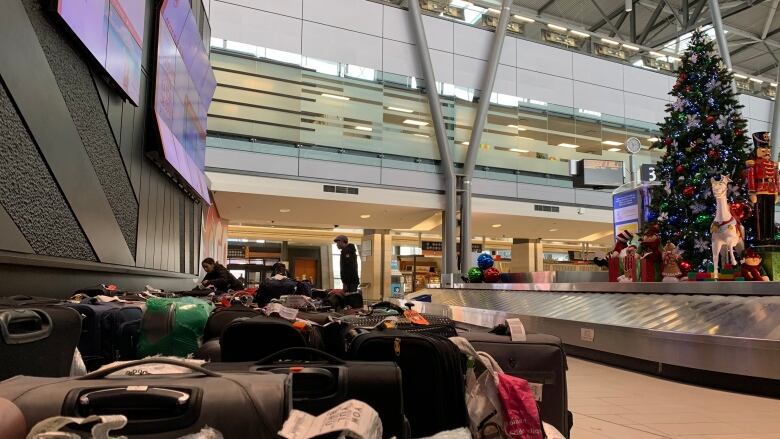There’s been a rising interest in people wanting to purchase travel insurance, some travel and insurance companies in Atlantic Canada say.
This comes after weather and staff shortages saw holiday travel disrupted across the country, and backlogged luggage became a common sight at Canadian airports. Passengers have been grappling with long wait times and unexpected delays since COVID-19 travel restrictions lifted less than a year ago.
Reports of travel woes haven’t dampened people’s enthusiasm for travel, but they are taking more precautions, said Paulette Soloman, owner of The Travel Store in Charlottetown.
Soloman said more people are asking about and purchasing travel insurance.

“Travel is a really big investment for most of us, and we don’t want people to be disappointed either in the lead up to their trip or while they’re on vacation,” she said.
Soloman said interest in travel insurance rose when COVID restrictions began to lift on PEI, and it only seems to be going up.
“I think that people have learned that it’s a very valuable investment to make,” Solomon said.

The cost of travel insurance can vary and depends on the type of coverage, a person’s age and the cost of the trip. But Soloman said that for many people it’s worth the added expense.
“Compared to the cost of an expensive trip, most people would find it, I think, quite reasonable to add to their trip cost for that protection and peace of mind,” she said.
Solomon said he’s also seen Islanders finding ways to avoid common travel issues, such as by taking direct flights out of Halifax or Moncton to avoid connections, or trying to only bring carry-on luggage.
Solomon said she personally invested in Air Tags tracking devices to keep tabs on her suitcase when she went on a Europe trip with several connecting flights.
“It’s not going to prevent lost luggage, but if your bag gets delayed or lost along the way you can actually track where it is,” she said.
Lost luggage concerns
Lost luggage has become a “pretty consistent story” when it comes to travelling, said Steve Olmstead, Canadian Automobile Association Atlantic’s director of social responsibility and advocacy.
“A lot of us have taken trips now where we’ve experienced arriving somewhere and our luggage hasn’t arrived with us.” he said, adding some people wait hours, days or even weeks.

That level of uncertainty is one of the reasons travel insurance products have been in such high demand, he said.
Although people usually feel that traveling locally is more predictable, the rising interest in travel insurance has also extended to domestic travel as well, Olmstead added.
“It’s very popular, those products, and I would hope they’ll continue to be popular for some time,” he said.
While returning to travel hasn’t been easy for passengers or airlines, Olmstead said he expects that to turn around in the long-term.
“I think it will get a little bit easier and a little bit more predictable. But right now we’re still trying to find that sweet spot.”
Insurance covers specific risks
Gabor Lukacs, president of Air Passenger Rights, said that, while travel health insurance is important, there are certain travel issues where going through insurance might not be the right option.

Issues with lost or damaged luggage should always be brought to an airline first, he said.
“In those situations, by going through insurance, you may also be forgoing the behavior modification effect that making the claims against the airlines would have,” said Lukacs.
Passengers have rights against airlines whether they’ve purchased travel insurance or not, he added.
“I think it’s important for passengers to understand that insurance covers only specific risks, while as passengers they have rights against airlines and that’s a far broader notion.”
